George Clooney’s Ides of March opens a line-up that’s heavy on English-language fare and likely awards contenders.
The 68th edition of the Venice Film Festival, which kicks off tonight with George Clooney’s Ides Of March, will go down as a transitional year for the world’s oldest movie celebration.
Artistic director Marco Mueller, the longest serving artistic director in Venice’s history, completes his eight-year mandate this edition. Whether Mueller will remain at the helm is yet to be seen, for now, he will only say that he “can’t wait” to return to producing his own films.
As the industry waits to discover the fate of the festival, itself under construction since 2008, what is clear is that Venice has taken great strides with Mueller and Biennale President Paolo Baratta at the helm. Plans for the new Palazzo del Cinema may be up-in-the-air, but this edition will at long last inaugurate the re-vamped Sala Grande screening room.
This year Sony films bookend the festival: Ides opens and Whit Stillman’s Damsels In Distress closes. Other Sony films include Roman Polanski’s Carnage with Kate Winslet and Jodie Foster and David Cronenberg’s A Dangerous Method with Viggo Mortensen and Kiera Knightley. The festival has a powerful first week, offering films from established Indies the likes of The Weinsteins with Madonna’s W.E. and StudioCanal/Working Title with Tomas Alfredson’s Tinker Tailor Soldier Spy starring Colin Firth, ushering in the star power.
Also playing in the first days, Warner Bros’ Contagion by Steven Soderbergh will play out of competition.
“From my first year, I was depending on Soderbergh to bring something new into the programme, if you remember in 2004 he brought Bubble to Venice and ever since I have been looking out for his intimation of how things could change even inside a major studio production. Contagion is a sci-fi plus thriller plus political criticism in his very own personal brand of filmmaking.”
Over the past few editions, Venice, like other European festivals were forced to adapt to new policies of US studio chiefs that no longer deemed European festival launches essential, as a means to tighten their belts.
This year, the strong line up of high profile English-language fare and a strong studio presence solidifies Venice as the start of awards season. “Very intelligent players understand what it means to position a film in Venice and then to have a stint in Telluride on the way to Toronto.” Mueller says, adding, with “thousands of younger viewers now attending, Venice has really become a useful testing ground so you could finally imagine the marketshare that could correspond to your film.”
While the studios and stars are essential, Mueller gets equally excited when talking about festival space offered to works that push boundaries and there are experimental works in and out of competition.
Speaking of Gipi’s The Last Man On Earth, Marjane Satrapi and Vincent Paronnaud’s Chicken With Plums and Sion Sono’s manga Himizu, Mueller is gleeful. “It’s fantastic. It’s a major testimony to the fact that cinema is making itself stronger out of taking things away from other expressive media… and graphic novels.”
Also outside the formal structures of filmmaking, Mueller re-vamped Orizzonti (Horizons) in 2010 allowing space for non-traditionally formatted films and new voices.
“We [can now] include some of the first films made by video artists because this is what is eventually going to change the form of cinema. We are very proud that some of the world’s leading artists choose Venice as a platform to launch their films.” Mueller cites Belgian visual artist and director Nicolas Provost, who returns to Venice with his first feature The Invader after presenting a film in Orizzonti last year and whose films were shown in a special programme in Sundance.
The 68th edition is also is a “great year for actresses,” Mueller says. “Kate Winslet is not just incredible in Carnage… but also in Mildred Pierce” (Todd Haynes’ TV drama screens in its entirety out of competition). Of Keira Knightley, Mueller enthuses, “It’s a very different Keira Knightley from that which we are used to,” as well as Tree Of Life actress Jessica Chastain, featured in Al Pacino’s four-years-in-the-making Wilde Salome. “You can really measure the way she has evolved, you see her becoming a very powerful actress.”
And, he says, “If you are talking about new talents, we have a very consistent new group,” speaking of Juno Temple in William Friedkin’s Killer Joe, Carey Mulligan in Steve McQueen’s Shame, and Evan Rachel Wood in Ides.
Summing it up, he says, “The programme this edition…represents us better than the other editions and resembles the qualities and dynamics we would have always liked to capture.”
Although known for his strong personality, Mueller isn’t grabbing credit here, saying he is “carrying on” a tradition he inherited.
“It was really (filmmaker) Carlo Lizzani, a radical intellectual (and ex Venice chief) who said ‘let’s gamble on a return of Hollywood to the Lido,’ so he could create a mix of elements.”
The point, is to “add the right chemical element to induce a reaction so that everything would eventually become very dynamic, that would profit both major studio films, independent films commercial artistic films or experimental. Since those days, Venice has been very often, in different proportions, a mix of these elements.”
Venice under Marco Mueller: 2004-2011
2004
Mueller pared down the competition line up by 50% to 70 some feature length titles. In following years, the number of features ranged from the mid 50s to 70.
Howl’s Moving Castle from animation master Hayao Miyazaki became first animation to be presented in Venice in 30 years.
2006
A surprise film introduced in this edition is now a festival fixture. That year’s last minute entry, the slow moving documentary about a Chinese dam, Still Life from Jia Zhang-Ke surprised when it took the Golden Lion
Mueller’s love for old films has found life in a retrospective series on ‘forgotten cinema,’ including his Italian King of the B’s – hosted by Quentin Tarantino. This was followed by The Secret History of Asian Cinema (2005) and The Secret History of Russian Cinema (2006) and a return to the Spaghetti Western in 2007 among others.
2007
Festival rivalry with 2006-launched Rome might have helped along the need to revamp the Lido. Mueller and then Biennale President David Croff obtained government approval for the new Palazzo Del Cinema project, leading the way to revamp the festival infrastructure that dates back to WWII.
2008
Paolo Baratta becomes Biennale president.
Lido re-vamp construction gets underway after the festival wraps.
Marco Mueller’s mandate is extended through 2011.
2009
New Persol 3D award added.
The 21-film competition featured five debut directors including Samuel Moez’s Lebanon, which scooped up the Golden Lion.
2009-2010
A strong presence of US studio fare allowing Venice to boast its slot as official launch to award season campaigns slumped during the global financial crisis, particularly in 2009-2010, however, those years allowed a more independent spirited American cinema – the likes of Katheryn Bigelow’s Oscar winning The Hurt Locker and Daren Aronofsky’s Oscar winning companion pieces The Wrestler and Black Swan as well as Sofia Coppola’s Somewhere and Tom Ford’s Single Man. In 2011, the studios are strong again in the line up.
2010
Orizzonti – the official also competition section with its own awards left behind standard narratives and feature length documentaries to become host to a bevy of artistically diverse works from short, medium and long and include works by outstanding video artists and non narrative films, confirming Mueller’s confidence in allocating space possibilities open to filmmaking.
Mueller presents a line up of the youngest directors ever, with a median age of 47 years old.
Mueller designs Controcampo Italiano, dedicated to Italy’s freshest works.
Historic Hotel Des Bains closes, ending an era.
2011
Mueller’s love for experimental grows. Three graphic artist’s works found their way in competition.
All world premieres across every single film to be in the festival, a festival post war first.
Newly appointed culture Minister Giancarlo Galan puts the mega costly new Palazzo project on hold as a lower budget solution is researched;
Newly refurbished Sala Grande opens.
Venice presents 65 features from 34 countries.





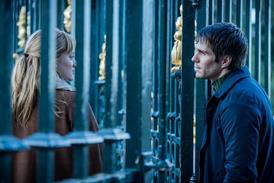
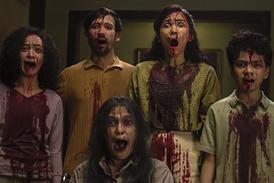
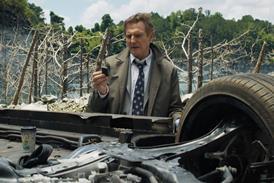
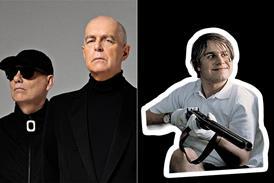
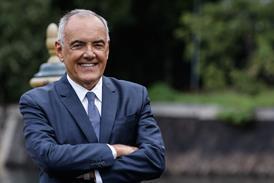

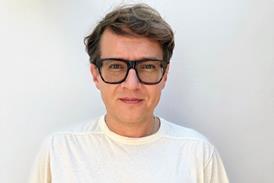
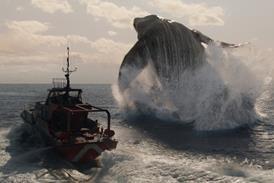
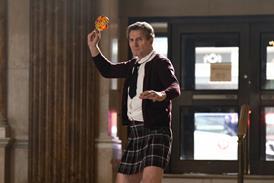
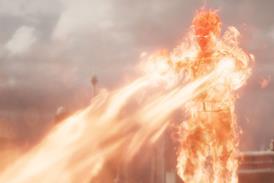
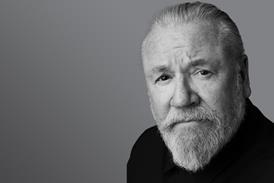
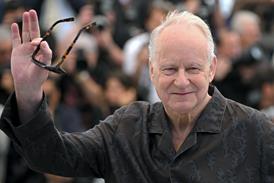








1 Readers' comment